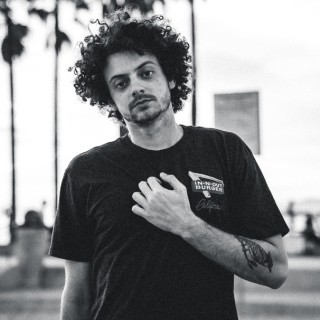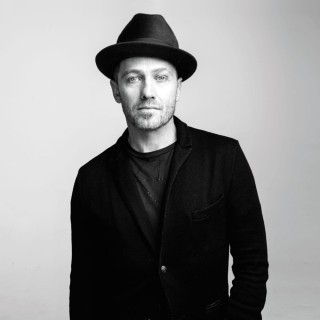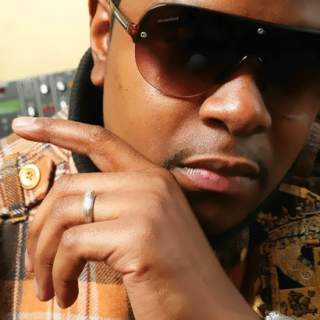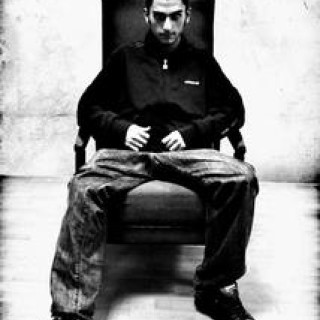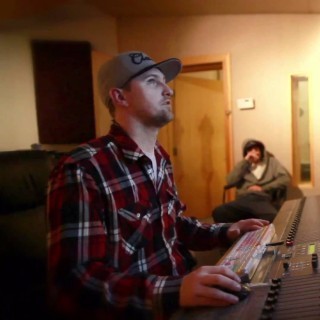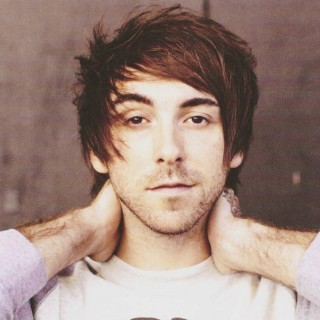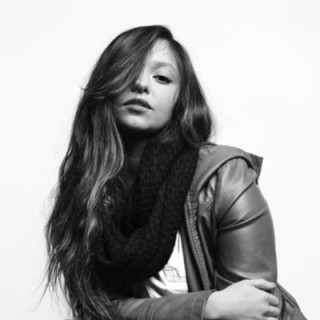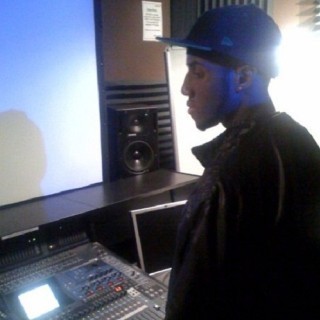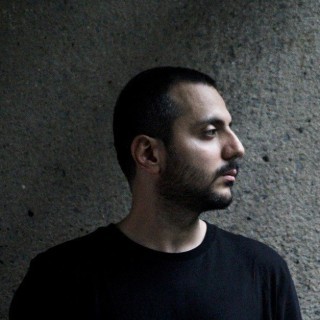
Trimalchio from Chicago: Flashing Lights and the Great Kanye in West Egg (excerpt)
A.D. Carson
The Cultural Impact of Kanye West
109
Rap
Tekst piosenki
There is an axiom that says all books are about other books. This proposition is supported by the fact that the archetypes found in the earliest of recorded literature continue to (re)appear in contemporary literature. Following the supposition that music lyrics, when read through a literary lens, also fall into the contemporary literature categories it is safe to posit that many of the archetypes of classical literature appear in contemporary music. Further, it can be assumed that there exist many songs, as there exist many poems (and other artworks in other forms), "about" classical literature, intentionally or otherwise, that can be used as a tool to make the canonized works more accessible to many students if we open our eyes to the existent possibilities. The popularity (and co-optation in many instances) of hip-hop culture in pop culture places rap music lyrics at the forefront of youthful preoccupation. The storied career of Kanye West places him in great company with moguls such as Jay-Z and Sean Combs not only as a hip-hop tastemaker, but also as a cultural icon with the ability to affect other areas of art and "everyday" living. West has been responsible, almost single-handedly, the cultural movements (progressions, even) in hip-hop and popular culture over the span of his career. Arguably one of the more controversial popular culture icons, Kanye West's life and career can provide interesting background and analysis for comparison (and contrasting) to one of literature's most famous characters, Jay Gatsby
As Gatsby's quest for Daisy represents the American Dream, so can Kanye West's quest (personal and professional) be similarly viewed. West's fascinating life story, highlighted by his debut album, College Dropout, is phenomenal, and set his trajectory to the highest of heights, ultimately garnering 10 Grammy nominations, and winning the Best Rap Album Grammy for "Jesus Walks." Jay Gatsby usually fascinates students even if they don't particularly enjoy or understand F. Scott Fitzgerald's novel. The Great Gatsby is probably one of my favorite works to teach because of the time period--the flourishing of the Arts, The Jazz Age, and The Harlem Renaissance---The Roaring Twenties. The Great Depression plays a part in my love of the era as well, but only to symbolize that all good things come to an end, so to speak, as did the run of Jay Gatsby (and those of his ilk). The version of The Great Gatsby taught at my high school, "The Authorized Text," has a preface written by Matthew J. Bruccoli (1992) that states, regarding The Great Gatsby being "the great American novel":
If this phrase means anything, it means that the novel is the great work of fiction with defining American thematic qualities and that James Gatz/Jay Gatsby is the great American character. He believes in the American Dream of success ("the orgastic future"); he fulfills it; he confuses it with Dais),; he is betrayed by it. The appellation great as applied to Gatsby reverberates with irony. He is truly great by virtue of his capacity to commit himself to his aspirations. (xi)I agree that Jay Gatsby has come to symbolize "the great American character" much more than I believe The Great Gatsby to be "the great American novel," but my arrival at this opinion of Gatsby has come slowly; unfolding as a great narrative itself, told by a narrator with a bit of distance from its central subject, yet close enough to be privy to details so intimate as to captivate a reader. Bruccoli (1992) refers to Nick Carraway as "the partially involved narrator" (xii). I would say such a storyteller narrates this tale
Much as some people fall in love with the grand concepts of idealism and romanticism, fueling their love for literature, I am simply in love with the hip-hop love story, which fuels nay love for music. It's become an archetype of its own: A kid, somewhere in the world, hears something said in between a kick and a snare drum that evokes a visceral feeling and, at that moment, is struck by H.E.R.--Hip Hop in its Essence and Real, as described by Common Sense in '94 Common (1994). Every person who professes a love for hip-hop knows the moment, and can recall, in vivid detail, their first meeting, courtship, love affair, and heartbreak[s] due to the relationship. I compare the love for literature and. music because one of nay primary methods of teaching literature has been not only through nay love for music, particularly rap lyrics, but also through ideas, expressions, themes, concepts, and characters in hip-hop culture. In Book of Rhymes: The Poetics of Hip Hop, Adam Bradley (2009) makes the case for rap's
Literary merits:
Between the street life and the good life is a broad expanse of" human experience. Rap has its screenwriters, making Hollywood blockbusters in rhyme with sharp cuts, vivid characters, and intricate plotlines. It has its investigative reporters and conspiracy theorists, its biographers and memoirists, its True Crime authors and its mystery writers. It even has its comics and its sportswriters, its children's authors and its spiritualists. It is high concept and low brow; it has literary hacks and bona fide masters. It has all of these and more, extending an oral tradition as fundamental to human experience, as ancient and as essential, as most anything we have. (158)Even before I had words to clarify this notion of rap as literature, much of my academic education had been informed by it. I would read a piece of literature and automatically make a connection to it somewhere in the realm of hip-hop culture. Bradley (2009) goes a step further to clarify, "To tell a Familiar narrative in a new way is the motivating impulse behind a lot of rap storytelling" (159). As a reader of literature, I always found myself discovering the "familiar narrative" while listening to the "new way" it's being told through hip-hop. With The Great Gatsby being taught in high schools across the world, and the renewed interest in F. Scott Fitzgerald and his novel because of Baz Luhrmann's 2013 movie adaptation (arguably a Hollywood blockbuster), I've come to see, more and more, Jay Gatsby's life as a possible parallel to Kanye West's
I will venture to say that my students' interest in Kanye West is much like their interest in Jay Gatsby--even if they don't particularly enjoy or understand his musical or lyrical intentions, they are interested in him as a person, as a character in the world of pop culture. I will also state that Kanye West, as an artist has, at some point or another in his storied career, worn all of the writerly hats Adam Bradley describes. He has been the screenwriter (his 2010 song, "Runaway," became a short film collaboration with Hype Williams), the investigative reporter and conspiracy theorist (the 2005 song "Diamonds from Sierra Leone," among others), the biographer and memoirist (the 2007 song "Big Brother," a tribute to Jay-Z and his debut single, "Through the Wire," respectively), True Crime author and mystery author (the 2011 collaboration with Jay-Z, "Murder to Excellence" and the 2007 song, "Homecoming," respectively), comic (much of his lyrical content depends on witty, comedic elements) and sportswriter (the 2007 collaboration with Li'l Wayne, "Barry Bonds"), and his lyrical and musical content ranges from low brow to high brow, all of which can be argued to be very intentional on the part of the artist
By way of analogy, this is where I begin my The Great Gatsby lessons with my high school students--with Kanye West. Not only Kanye, but also the world in which he operates that has heralded and hated him, admired and despised him, created and destroyed him. Of course, I would not just give the students Kanye and hip-hop/pop culture as a backdrop and set them loose. There's historical precedent for this comparison that the students should know about. Along with abundant information on the "Jazz Age," I present Langston Hughes's 1926 essay, "The Negro Artist and the Racial Mountain." Hughes writes of the plight of"Negro artists" creating in America in the 1920s--the Harlem Renaissance and some artists' aspirations to create art that is, somehow, not representative of their race or culture, for instance, a poet--not a Negro poet" (1). This essay begins a discussion about the "responsibility" of artists regarding their lives and their art. I ask, "Can an artist simply be an artist without any consciousness of race and/or culture?" and "If so, are his message and meaning likely to be misinterpreted or misjudged because of the titles we, as students, teachers, appreciators, consumers and critics, place on the artist, whether it's African-American, female, young, old?" This always leads to an interesting discussion, especially because of the correlation to the same questions being asked about current trends and artists in pop culture. Hughes (1926) sums up his perspective in the closing of his essay:
We younger Negro artists who create now intend to express our individual dark-skinned selves without fear or shame. If white people are pleased we are glad. If they are not, it doesn't matter. We know we are beautiful. And ugly too. The tom-tom cries and the tom-tom laughs. If colored people are pleased we are glad. If they are not, their displeasure doesn't matter either. We build our temples for tomorrow, strong as we know how, and we stand on top of the mountain, free within ourselves. (1)Of course, this is only one of many perspectives on the obligation of artists, specifically "Negro" artists, but raises the question of "keeping it real," so to speak, and also makes for a perfect connection to the conversation about hip-hop culture, pop culture, and the responsibility of popular artists to be "good" representatives of what it means to be black in America. It opens up conversations about mainstream v. underground, the business of music (or art, in general) and artistic integrity
After a bit of conversation about the era in which the work was created, I like to discuss the author of the work, to see if the students can gain any valuable information about the work from the life of the person who created it. In his Gatsby introduction, Bruccoli (1992) recalls an F. Scott Fitzgerald quote from 1922, before The Great Gatsby was written, in which he declares, "I want to write something new--something extraordinary and beautiful and simple + intricately patterned" (vii). Similarly Kanye West, in an interview with the New York Times's Jon Caramanica (2013), preceding the release of his album Yeezus, heralds it as a project on which Kanye strives for "aspirational minimalism," stating, "I want to break glass ceilings" (n.p.). Mr. West's previous solo album is interestingly, in this context, titled My Beautiful Dark Twisted Fantasy (2010). No author, no artist, is so independent of his work that his craft, his brushstrokes, his personality', some degree of his being is not recognizable in the stories he tells. As Fitzgerald wrote Gatsby Kanye writes KANYE. It is a well-known fact that much of what Fitzgerald wrote was inspired by people he'd known (or knew, as is the case with his wife Zelda, and the pages of her diary that inspired some of his stories). As much as they write about the worlds in which they live, both write about themselves. My comparison of Kanye West as a personality--a character--presented in his music and to the music and pop culture-consuming public to Jay Gatsby, therefore, also operates as a comparison of Kanye West as an author and architect to F. Scott Fitzgerald as well. Both men, to varying degrees of achievement, create great American success stories, just as Kanye West's life follows the archetype embodied by Fitzgerald's Jay Gatsby
With the groundwork laid, the discussion of the archetypes can commence. It's at this point that I digress a bit, but only to help illustrate my greater point. I start, as one should, at the beginning of the novel
"In my younger and more vulnerable years," begins the narrator in the opening lines of The Great Gatsby, "my father gave me some advice that I've been turning over in my mind ever since
'Whenever you feel like criticizing anyone,' he told me, 'just remember that all the people in this world haven't had the advantages that you've had.'"
In the version of the story I'm always the Nick Carraway character, reserving my judgment, allowing my audience--my students--to come to their own conclusions. I merely state the facts for them:
I met Kanye West in 1999. We both performed at a music festival at Columbia College in Chicago, and I had just killed what was one of the biggest shows of my short "professional" rap career. The year leading up to that show 17 had struggled. I had given up an academic scholarship, dropped out of college, lived in my car, and wrote songs I felt represented a struggle that needed to be shared with the masses
I walked offstage, proud, through the crowd of aspiring rappers and IR,&B singers, and greeted him with a compliment, as I assumed many people had in the past (and I'm certain did in the future)
A simple, "That was dope." He returned the compliment
I told him my name, and as he made a start to tell me who he was, I interjected, "Oh yeah, I know who you are. You did the tracks on the Infamous Syndicate album. Dope album."
I even quoted a few lines fi'om "What You Do to Me" to prove I actually was a fan. I gave him a copy of my demo, and we exchanged information. There was a fbllow-up call the next day--he liked two tracks (there were 17 on the tape), and even offered production for an exceptionally reasonable price. I thanked him for the feedback and the offer of a businesslike relationship. I passed on the beats. I prided myself on the fact that I had relationships with producers who worked pro bono, because they liked the rhymes I wrote to their music, and I was the epitome of a struggling artist, so I didn't have the money, even if I wanted to purchase tracks. But I was on my way to stardom and figured our paths would cross again somewhere beyond the atmosphere. My assuredness was only secured by the fact that I had met him--one of my heroesÿon an even playing field. We were doing the same thing. We performed on the same stage
The next year I would release my album, do more shows, and eventually lose all of that optimistic ambition about nwmyrap career. In that same year Kanye West would go on to become KANYE WEST, tapper/producer extraordinaire, hip-hop/pop culture icon. When his debut album, The College Dropout, dropped in 2004, I was fresh out of school, having finished my Bachelor's degree in English Education and Creative Writing. I was right back where I started, I thought, in those classrooms that helped shape my rap dreams, the same city that fueled those hip-hop ambitions. I became an English teacher because rap didn't work out. I don't think it was because I'm not skilled at it; I just don't think I could commit fully to the idea of venturing outso f:ar with no guarantees and no backup plan
I would continue to write and rap, releasing several music projects, a multimedia novel, and a collection of poetry, stories, and essays. I would eventually come to understand that Mr. West and I were (and possibly still are) flipsides to the same coin. Hip-hop never stopped being my outlet, and I would argue having the experiences that led to my reentry to academia and my career as an educator made me more studious, more industrious, and more driven to "make it." I felt his debut album lampooned what I was doing, and felt it was not only a slight on me and people like me, but also a dangerous message to anyone who listened and thought it might be just that easy to become a celebrity overnight
I've made it my duty to follow West's career, if for no other reason than to remain aware of how he attempts to move hip-hop culture forward, to see what possibly could have been. I am aware of the fact that his career and mine are different roads traveled from that fateful (for are) meeting in 1999. I am also aware of the fact that it has made all the difference in the world that the road he is traveling has informed mine, and in maw ways, mine his. I set out to prove, despite his lampooning, a man could graduate from college, love hip-
Hop, produce, create, excel, and be fulfilled. I imagine that he has spent his career answering to fans like me, the ones who know about the Infamous Syndicate work and the Bad Boy work--the people who were (and still are) fans, and want to know what's next
Not only do I continue writing verses and songs, I have found a bit of contentment in writing about hip-hop. In that way, I like to fancy myself Nick Carraway. Carraway moves from the Midwest to New York to learn the bond business; I wanted to learn the business of hip-hop. Nick meets Jay Gatsby, the epitome of the American Dream successful, flashy, host of the best parties. In my imagination, Jay Gatsby is Kanye West. West has not been able to find peace in the limelight, rather, it seems the more attention he receives, the more he balks at the very idea of "fame." It could be argued that Kanye West, much like F. Scott Fitzgerald's titular character, is somehow standing in a vast wilderness--perhaps pop culture--the darkness that is the current state of hip-hop (music and culture)--looking out over the ocean at the ever-elusive flashing lights. It's my job to narrate the story and try my best not to judge, simply state facts as I know them to be
Interestingly enough, the Kanye comparison works in this archetypical fashion, and brings many parallels with it. Reality television has given Kim Kardashian a platform to flaunt the excesses of celebrity for the sake of celebrity. She is one of the highest earning reality television stars, and is involved in many business ventures as a result of her reality television fame--quite an ascension from being the daughter of O. J. Simpson's defense attorney and step-daughter of an American Olympic gold medalist. If Kanye is Gatsby, then one could easily make a very basic case for Kim Kardashian being Daisy Buchanan, the self-absorbed party girl/flapper from "old money" with whom Gatsby becomes enamored and who sets him on course to create a fantasy in which she can live and he can have her to himself, forever reliving those wonderful moments they shared in their youth; her (ex) husband, Kris Humphries, would perhaps be Tom Buchanan, Daisy's husband, who represents "old money" as well, and is a former athlete. Tom could very easily be paralleled to Reggie Bush as well, and perhaps more appropriately so since Kanye's former friend and collaborator, Consequence (2013), revealed (with Jen "The Pen" Bayer, the mother of his child), in a January 21, 2013, interview on New York's Power 105.1 Breakfast Club Show, that he'd facilitated meetings between Kim and Kanye while she was dating the NFL star. Consequence, then, would understand Nick Carraway's discomfort when asked to do the very same for Gatsby and Daisy in chapter 4 of the novel, which he eventually does in chapter 5. This is a pivotal moment for Gatsby, because it seems it is the realization of his dream, to have Daisy. His life's work is complete because he has obtained what it is that he has worked so hard to get; whether it's genuinely the love of his life, or if she is a symbol of status, Gatsby has Daisy, and the charade, it seems, is over. He has proven himself, perhaps only to himself. Gatsby calls off his lavish parties, preoccupied with his new "life" with Daisy, and Nick, during a visit to the Buchanan home where Gatsby and Jordan Baker are also present, becomes acutely aware of Daisy's disinterest in her and Tom's young child. This is the point at which the reader comes to learn the defining aspects and true nature of all the principal characters in the novel. This is also the beginning of Gatsby's great fall. At this point, the comparison of Gatsby to Kanye becomes more the work of the student than anything, leaving room for contrast and speculation regarding Mr. West's ultimate fate or whether his life can be seen as wholly comparable to that of Gatsby. Nick ultimately becomes aware that the Buchanans are careless people who recklessly go through life doing whatever they please, only to retreat behind their money when anything goes awry. Whatever your opinion of the world and the people who occupy the world in which Kanye West lives, there exists a viable correlation, and if not, at least room for a meaningful discussion on the topic
As previously stated, I find great interest in the hip-hop love story-- Hip Hop in its Essence and Real--and how this love sets many artists on the same course as Gatsby after he met Daisy, in 1917. And, like Gatsby with Daisy, the artist finds H.E.R. "excitingly desirable," perhaps because the meeting is "a colossal accident," but he still takes "what he can get, ravenously and unscrupulously," and ultimately, after having her finds that he has "committed himself to the following of a grail," feeling "married to her" (155-157). The artist finds that he is in love with H.E.R. and will do most anything to havc H.E.R. the way that he had H.E.R. when they first met. Common is disillusioned and despises that he sees H.E.R. comn:ercialized, used, and abused, and vows to "take her back" much as Gatsby aims to take Daisy back from Tom. Whereas in Gatsby's case, "It excited him too that many men had already loved Daisy--it increased her value in his eyes," Common feels a bit different (156). Common is obviously displeased with H.E.R. dalliances with other artists because he wants H.E.R. all to himsel£
Kanye West, on his 2008 album Graduation, pays homage to Common's "I Used to Love H.E.R." with "Homecoming," an ode to a "girl" he met when he was three years old named "Wendy." His lyrics formulate a well-hidden conceit much like Common's, only to reveal that instead of being a story about "Hip Hop," this is homage to "Chi-Town." Hip hop, by connecting the past to the present
Creates for future artists a story that merits repeating, remixing, and retelling. If the axiom is true, and all books are indeed about other books, perhaps all songs are about other songs, or, more fittingly, all lyrics are about other lyrics. And maybe, then, the journey of Kanye's to reclaim a "lost love" has much less to do with Kim Kardashian as an emblematic status symbol or a reminder of the promise of times past like Daisy,a and snore to do with Hip Hop in its Essence and Real. And perhaps that "aspirational sparseness" that he is now testing out is his telling us, as the passage in The Great Gatsby in which Gatsby says to Nick, who cautions him not to get his hopes up about Daisy because their past can't be repeated, "'Can't repeat the past?' he cried incredulously. 'Why of course you can!'" (116). Kanye constantly speaks about his duty as an artist to aspire to purity. This, it seems, is the true essence of art for him, and is perhaps what drives him to not only be a fascinating cultural figure, but also solidifies his comparison to Jay Gatsby--the reaching out toward the metaphorical green light at the end of the Buchanan's dock, the willingness to risk all of his successes and accomplishments to push forward and to push back, the need to say and do what he feels needs to be said and done to maintain that purity, the essence of what he sees as H.E.R. In a Rolling Stone (2010) interview about My Beautiful Dark Twisted Fantasy he states:
I forget the word, but there's [sic] people throughout history that [sic] their responsibility is to be conveyors of truth on to next generations. There's a word far that type of person. And I feel like I'm that type of person that [sic] has to carry on the truth and tell 'The Story' not 'His Story.' Tell the story; where it's like Raphael's painting Jesus' wish, knowing the pope would have his head but he died before the pope got the piece. But as a [sic] artist he said, "Yo, I need to express this our I'll die, I'll die inside. This is what I saw, this is what I want to paint as a [sic] artist." I feel like artists take their lives to serious or not serious enough. Where, you know, who would really put their life on the line for what they really, really believe in? Who would make a sacrifice?Kanye goes on in the interview to explain that he believes many of his contemporaries to be "scared," saying they "run away from popular culture," and because of this, he sees them as "falling short of the greatness of Rock 'n' Roll" (Video Interview1°). From his humble, anonymous beginnings in the world of hip-hop, produchlg music he was barely credited for doing, to his production work on one of the defining albums in hip-hop history, Jay-Z's Blueprint, Kanye West has aspired to see hip-hop created and performed in its purest essence. In an interview about his debut album, The College Dropout, with Associated Press writer Nekesa Mumbi Moody (2004), West states that his hip-hop aspirations started early, first convincing his mother to loan him money to buy his first keyboard, believing so much in himself and his musical potential that he says, "I thought I was going get sig toned back when I was 13 years old, and come out with a record and take Kris Kross out" (1)
That moment created by Kanyc West in 2004, when he experienced H.E.R., the essence of hip-hop, and brought the world his view of what hip-hop could be--The College Dropout-- created a moment he's been striving to recreate since, as Gatsby did all he could, throwing his lavish weekly parties and befriending her cousin Nick, to create the circumstance in which he could again have a chance encounter with Daisy. Feeling "married" in those moments to their respective dreams, both set on a course fprward, by going backward, propelled toward an ideal future by a "perfect moment" from their pasts. Nick narrates to readers at the close of the novel, "Gatsby believed in the green light, the orgastic future that year by year recedes before us" (189). To Gatsby; the green light is a sym- bol of Daisy, of old money, perhaps of wealth in general, of simpler times, of happiness--all ideas associated with the American Dream. As Kanye West has written and recorded songs such as "All of the Lights," "Flashing Lights," and "Street Lights," on topics that could easily be aligned with the ideals of Life, Liberty, and the Pursuit of Happiness--"The Good Life," to use his own words, but also being sure to shine as much light on the "bad" as the "good," embracing Langston Hughes's challenge, "express[ing] [his] individual dark- skinned [self] without fear or shame," baring his soul for the sake of art--the dream of any artist (1). Gatsby's fate is sealed, as he is consumed by the world he creates and in which he participates. It's not the implied illegal activities in which he is rumored to be involved, but the fantasy he creates, of picking up from that moment they met and continuing his life with Daisy. Reporter Chris Campion (2011) asks Kanye if he feels as though the success of his debut album is because he "brought something different back to hip hop" (1). Kanye replies, "Well, I don't know how you can bring something different back. You can either bring something that's done back or else bring something different" (1). The brand of different created by Kanye with H.E.R. has been his aspiration since The College Dropout, to what levels of success he has achieved it is debatable. He has not met Gatsby's fate, though some fans and critics believe the "old" Kanye to be no more. To date, Kanye's is a happier tale than Gatsby's: he's both got his dream girl in Kim Kardashian and he's doing his dream job, receiving much critical acclaim for his latest musical contribution, Yeezus. He goes on to tell Campion, "I guess [I'm] bringing something different. Hip hop is fixated on fantasy" (1). Unlike Gatsby, Kanye's fantasy has worked out, and he has found a way to successfully live in it
As for nay part as the "partially involved narrator," I, as Nick, am "inclined to reserve all judgments" (5). Maybe, in the end, we will all come to see Kanye in the same light Nick saw Gatsby:
...who represented everything for which I have an unaffected scorn. If personality is an unbroken series of successful gestures, then there was something gorgeous about him, some heightened sensitivity to the promises of life:, as if he were related to one of those machines that register earthquakes ten thousand miles away. This responsiveness had nothing to do with that flabby impressionability which is dignified under the name of the "creative temperament"--it was his extraordinary gift for hope, a romantic readiness such as I have never found in any other person and which it is not likely I shall ever find again.Kanye may very well be hip-hop's Gatsby, representing everything I loathe about the culture while simultaneously embodying ever thing that is beautiful about it as well, because the recognition of those loathsome attributes are simply a reflection--a yin to a yang--of what is beautiful. Perhaps Kanye's life, as Gatsby's could likewise easily be described, is evolving into a beautiful, dark, twisted fantasy into which his sensitivity provides an outlook we consumers, mere outsiders peeking in at (or, through), only register through the binary of "genius" or "crazy" "Creative temperament" is what we tend to call it, because we have--even if he hasn't, and has no reason to--given up hope, and rather than recognize it as the extraordinary gift it is, we mistakenly overlook it in search of something else. We look for another angle: a controversy, a quarrel, a personality flaw, or something even less significant, when we could simply try to view Kanye as Nick saw Gatsby
Eventually, we may come to say "No--Kanye turned out all right in the end; it was what preyed on Kanye, what foul dust floated in the wake of his dreams that temporarily closed out our interest in the abortive sorrows and short-winded elations of men." (7) And we will realize that he was "worth the whole damn bunch put together," Nick's words to Gatsby at the end of their last meeting, letting Gatsby know that Nick sees him for who he is: A great man who believes in his dream and is willing to sacrifice everything in his quest to reach it
Tłumaczenie
Brak
Polecani artyści
Najnowsze teksty piosenek
Sprawdź teksty piosenek i albumy dodane w ciągu ostatnich 7 dni
